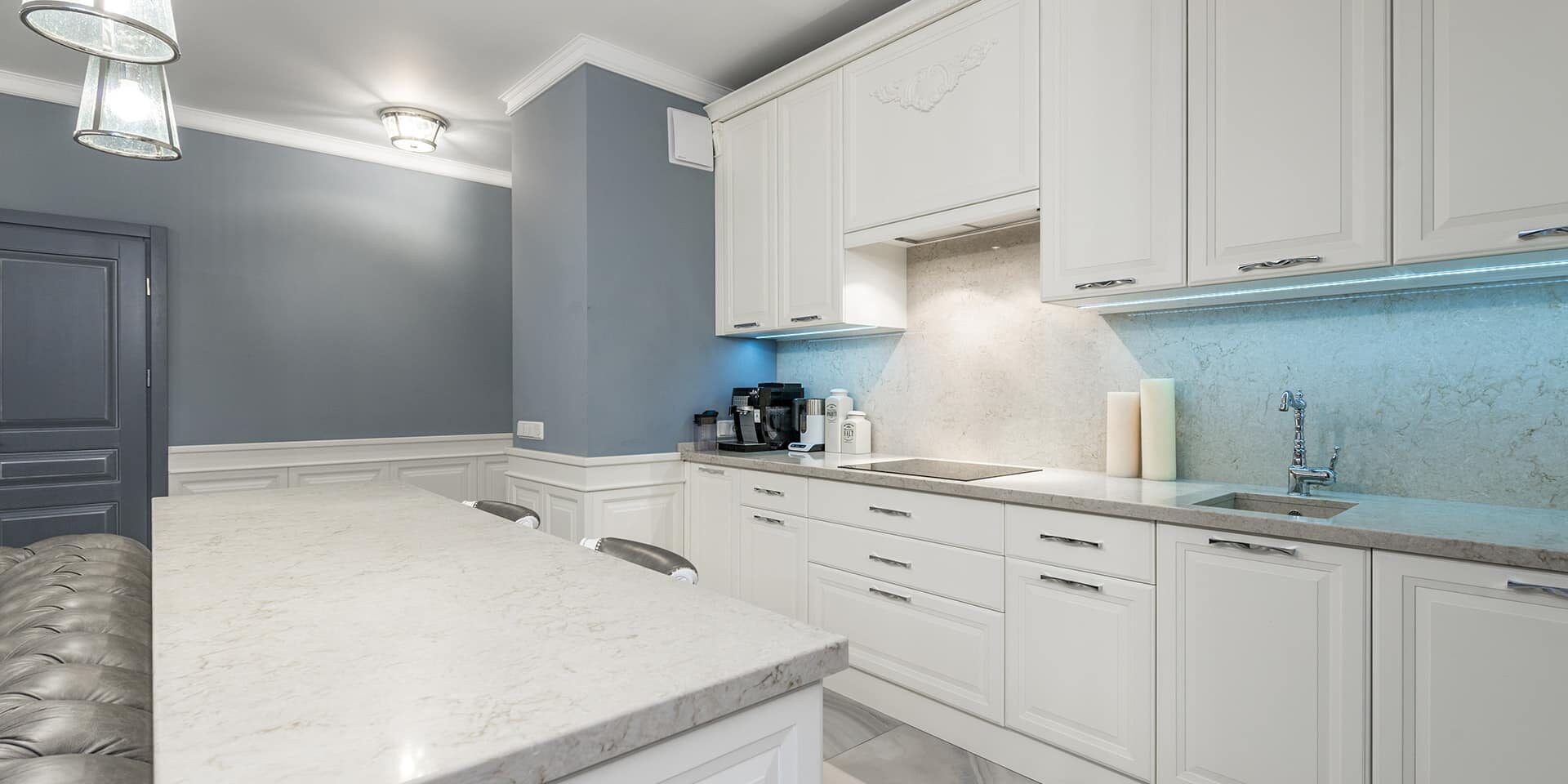How Strong Is Granite Compared To Other Natural Stone Surfaces?

Choosing a suitable material for your kitchen surfaces can help these surfaces last a long time. And with the wide array of surfaces available, settling on what material to use can be challenging. If you’re considering granite countertop installation in your kitchen, but are unsure about how strong it is, read on to learn how it compares to other natural stones.
1. Resists Chipping and Scratching
Granite is one of the most robust materials on earth.
On the Mohs hardness scale, based on how it scratches, granite rates 6/7. This hardness makes it a top choice for durable countertops. Granite is strong enough to withstand most activities you would perform on your countertop.
Using a chopping board instead of cutting directly on the surface is always recommended to avoid damaging your countertops. But interestingly, when it comes to many stones, including marble, it’s because they’re pretty soft, and cutting on them directly can cause scratching.
Granite is so hard that the reason you need to use a chopping board is it can dull your knives. That’s how strong the stone is.
You still need to properly care for your granite countertop, despite its strength. Don’t make a habit of using knives and other sharp objects or smashing food directly on the surface of your granite countertop. As strong as granite is, over time, your countertop will likely scratch or chip due to improper use.
2. Resists Heat
Another significant factor that gives away just how strong granite is compared to other natural stones is its ability to resist heat.
Granite is formed from magma exposed to intense heat and pressure, making it stronger and more resistant to heat than many other natural stones.
This stone can withstand temperatures as high as 1200 degrees Fahrenheit. That’s why you can place hot objects on a granite surface without worrying too much about damaging your countertop.
However, exposing granite countertops to extremely high temperatures for extended periods will eventually cause damage. It wears out any coating on the countertop resulting in peeling.
3. Resists Moisture
Granite’s natural resistance to water is another reason it’s a preferred choice for many people.
Granite is not waterproof. It’s naturally porous because it’s a stone, meaning bits of water can pass through it. But the amount of moisture it absorbs is nowhere near that of other stones like limestone or sandstone.
When properly sealed, granite does not absorb moisture or the stains they cause. To be sure no fluids seep in, it’s recommended that you reseal it every one or two years.
Interestingly, darker granite shades tend to be thicker. These dark-colored granite stones may not even require sealing to boost moisture resistance. On the other hand, lighter granite shades may need multiple sealer coats due to their higher porosity.
At E&B Granite, we have a wide variety of granite colors you can choose from. We install them to your satisfaction and do all the treatment necessary for a perfect renovation project.
Transform Your Kitchen with Our Granite Countertop Installation
Now you know all there is to know about how strong granite is compared to other natural stones. Granite can resist high temperatures, moisture, and scratching or chipping. Contact E&B Granite for the best granite countertop installation. Our installation experts make even the most modest kitchen look like a luxury space.